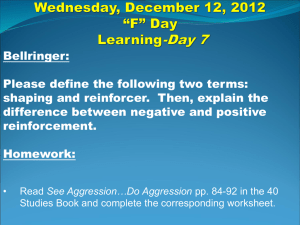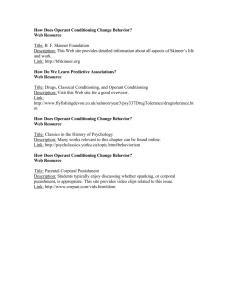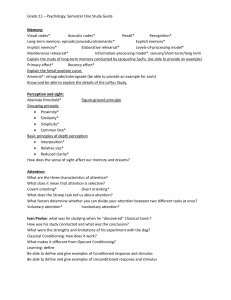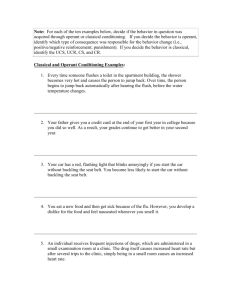Types of Learning
advertisement
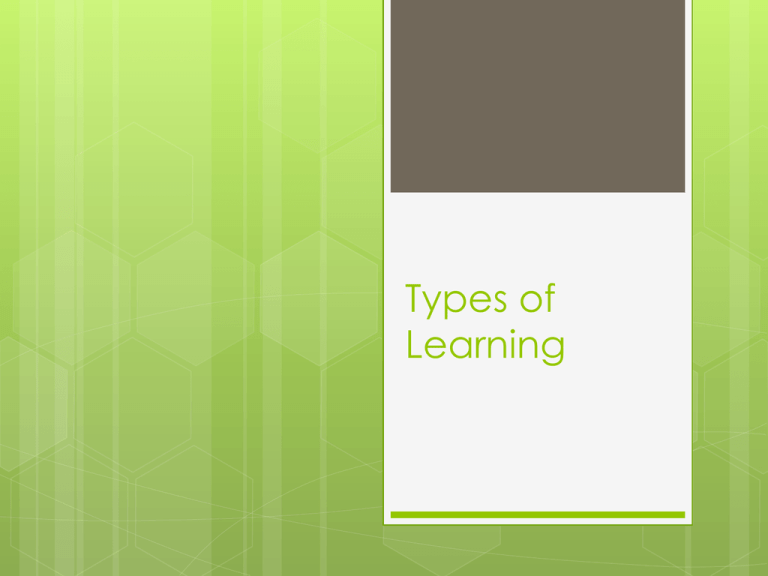
Types of Learning Directions Go through this power point and fill out the first page of your outline Make sure you answer the questions in your blue book as directed Learning is … A change in behavior that results from a previous experience ( behavior can be observable or a thought) Give me an example- write it in your bluebook Identify week. Think something you learned in the past about the definition of learning- how do you know you learned something? Factors that affect Learning (part of cognitive learning) Feedback - must be descriptive rather than evaluative, timely, welcome, Useful specific Attention Focusing on the correct thing Practice Doing something over and over again Mental Practice Going over something in your mind Think about it Does mentally practicing physical skills make you better at the skill? The next slide has a lot of words! Rewrite It the definition in your own words needs to make sense to you! Classical Conditioning A learning process in which something that had not previously produced a particular response (NS) becomes associated with something that produces the response(UCS). As a result, the conditioned stimulus will elicit the response that the unconditioned stimulus produces. Elicit means to … evoke or draw out (a response, answer, or fact) from someone in reaction to one's own actions or questions. Important- classical conditioning has to do with things that go on inside of our body …physiological responses such as heart rate and feelings, Classical Cond. examples 1) Learning to feel upset at the sight of flashing police lights in your rearview mirror. 2) Learning to feel anxiety when you hear the sounds at the dentist’s office 3) Feeling tender emotions when you hear a song that was associated with your first romance Write your own example in your bluebook Operant conditioning Learning in which the consequence that follows a behavior increases or decreases the likelihood that the behavior happens again Important- you make a choice to do or not do the behavior Operant conditioning examples Sue jumps off the third platform at Hidden Hollow and smacks her arm. She doesn’t jump off again. ( smacking her arm on the water decreases the chance she will do it again) Jim cuts his neighbor’s lawn and gets yelled at because he didn’t do it right. He doesn’t cut it again ( the yelling decreases the chance he will do it again) Joe is paid for cutting the lawn. He cuts the lawn weekly. ( the money increases the chance that he will do it again) Think about it… In all of the operant conditioning examples the person chose a behavior because of the consequences of past behavior. In your bluebook, write your own example of operant conditioning Cognitive Learning Learning which involves mental processes such as attention and memory may be learned through observation or imitation may not involve external rewards (remember there are factors that affect this) What type of learning? - write it in your blue book, there may be more than one answer 1. Completing an algebra problem 2. Increased heart rate when going to the dentist 3. Getting hungry everyday at 12:00 4. Leaving class when the bell rings 5. Showing up late for class, getting a detention and not showing up late again

